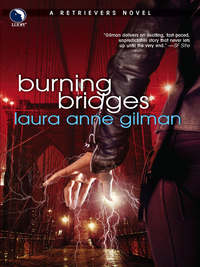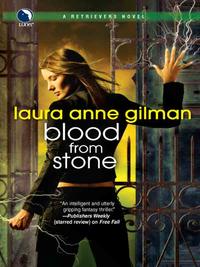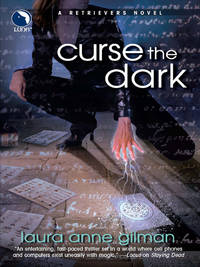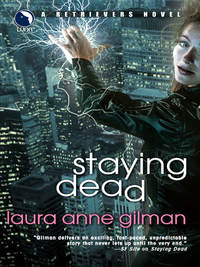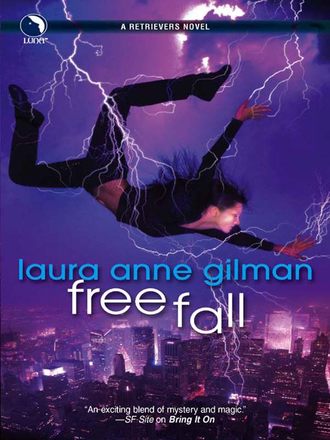
Полная версия
Free Fall
Andre had worked briefly with The Wren, Genevieve Valere. He had been the one to coax her to the Silence’s side, if only for a short time. Everyone in the room knew that. They assumed that was why he was here, to give Duncan the inside scoop on the lonejacks’ unwilling figurehead.
For all Andre knew, that was what Duncan himself believed. But he doubted it. Duncan understood Andre well enough to know that whatever information Andre were to give up on the young Retriever, it was limited and out-of-date. Ms. Valere had never trusted him, and Sergei—now dead-set against him—would be sending them no further details of the Cosa.
Sergei had been there that day as well, when Poul killed an innocent on Duncan’s orders. Duncan had given the order, and then left before it was carried out. He had not been there when Andre turned his coat back to its original color and killed Poul, striking while the man’s back was turned and his attention was elsewhere. Andre and a touchingly shocked Sergei had arranged the scene afterward, making it look as though, rather than the Fatae killing Bren as originally plotted, that Poul had done the deed, and a Fatae had killed him in retribution. No one could argue with a little street justice, on a day already so bloody.
“Lies built on lies, to protect the truth. This world turns on chaos, and we all fall into the fire.” He had said that to Sergei, before they parted. He had known, as he said it, that they would not meet again.
He missed the boy.
Shutting off those thoughts, Andre returned his attention to the meeting, turning his hands palm-up and considering the mahogany skin of his fingertips as though his script were printed there. “The Cosa knows where we are, physically.” They had left two bodies on the front steps earlier that year, as a message, although Sergei insisted that the Cosa had not done it. “They know where we are cybernetically, that much is clear, and they are showing us that we are vulnerable to them even through our electronics, where they should not dare to go. And yet, the attacks they have made? Are not even half of what they are capable of, if driven to it.
“To this point we have been protected by their own disorganization, and the fact that even the most arrogant of Talents is hesitant to take a life. If we were to push them over that line…”
Duncan definitely leaned forward now, waiting to hear Andre’s concluding thoughts, as though anticipating they would match his own. “Yes? If that hesitation were to be pushed, by action on our part? If these Talent were to lose that inhibition, that veneer of civilization?” Duncan sounded honestly curious. That worried Andre, but he couldn’t hesitate. His answer would not change, anyway.
“Then we would be in trouble. Sir.”
“We” was such a curious word. The others in the room took it to mean all of them, as the alpha lions of the Silence pride. Where “we” went, the Silence followed. Andre meant the Silence itself, the Silence he joined, the one he wished to preserve. And it had no room for Duncan or his cadre of faithful fanatic in it.
Duncan? Who knew what Duncan thought, or believed, or planned? He spoke often and convincingly of a humans-only city, a humans-only civilization, where the reliance on superstition and magic was a thing of embarrassed memory, but for what reason? What end?
Andre didn’t give a damn. Andre was just there to limit the damage Duncan could do to the Silence as a whole, and remove him from his seat of power as soon as possible, however and whatever means it took to do that. Wren and her people—including Sergei, now—would have to fend for themselves. He wished them well, but unless their interests overlapped with his right now, they were no longer his concern.
“Ah. Yes. So you see, Reese, there is a logic behind my plan. Unless you have information we have somehow missed?”
Reese blinked, seeing the sword metaphorically being offered him, and declined to fall upon it. He sat with a little more haste than grace, and if anyone in the room blamed him, or thought it was amusing, you could not tell it from their expressions.
“All right then. We all have other things to do this day, so I ask again, what’s next?”
The next item up for discussion was one of great interest to Andre: the matter of a Silence director who had gone on record as being opposed to the money spent on one of Duncan’s projects. The code name for it—“Brunswick”—was one that Andre did not recognize. Before, Andre would have gone to Darcy—still faithful despite her boss’ sudden and unexplained change of alliances—and she would find it for him. Now, however, it was more important that Darcy remain his ace in the hole, protected from any overt association with him.
What was more important than the project was the attitude taken toward the dissenting director, a man who was not part of the invited cadre, was not in this room to protect himself, or negotiate allies among those who might do it for him. If he were able to warn this man of the danger he faced, would he win an ally? Or open himself to the same fate, should Duncan learn of it?
That was a question to ponder, and carefully. There was too much at stake to act impulsively.
six
Wren stood in the kitchen, and stared at the crumpled bit of yellow paper in her hand as though it would suddenly give her a clue about what was going on.
“I came in here to…” To do what? The thoughts came slowly, not her usual quicksilver stream, and she was having trouble focusing on things, remembering things. Why was she worried about the demon? Her head hurt, like an old hangover. Why had she come back here? She hadn’t finished the job, why was she home? She had been standing there, this scrawled note in her hand, for too long. She knew that much, at least.
Shower. She needed to take a shower. Hot water always made everything better.
Shedding the rest of her clothing in the hallway as she went, Wren headed for the bathroom. By the time she reached for the shower taps, turning the hot water on as high as possible, she was naked and shivering, despite the apartment being seasonably warm; for once, P.B. hadn’t left the windows open.
She stepped under the spray and bent her head under the water until the pounding outside matched the pounding inside. Slowly she remembered. Not everything; she was aware that her brain was withholding information, but she wasn’t too worried about it. She had been set up, and attacked. She had dealt with the attackers; now she was going to deal with the ones who had sent them, who had set them on her for the sole fault of being a Talent.
The Silence. No matter what Sergei once thought of them, no matter what her ex-partner still thought of them, they were the enemy. Elegant Andre, his errand-boy Poul, even the blond woman who had tried to warn Sergei to back off…all of them ranged on the wrong side of this war.
And Sergei? Where was her former partner, her lover, her love, in all this?
Wren let the water hit her face, washing that question away. She couldn’t answer it. She wouldn’t deal with it. Not right now. Let him just stay out of the line of fire, and she wouldn’t have to deal with it.
After the initial tears, after the attack, Wren’s tear ducts had dried up. She had thought she was holding back, but now that she was safe, in the safest place she could think of, the tears didn’t return.
The water might be washing her skin and soaking her hair, but inside, she was dry and still as a summer desert at noon.
Turning off the water without even bothering to soap up or wash her hair, she got out and wrapped herself in the first towel that came to hand. Her hair in wet chunks against her bare shoulders, she started for the bedroom when a knock at her front door stopped her.
“Who is it?” she yelled.
“Bonnie!” the voice yelled back, in a “who the hell do you think it would be” tone. Wren had forgotten she’d invited the other lonejack up. Brownies. Right. Wren didn’t even need to reach for current to unlock the door; it was already in her veins, doing her bidding before she thought the command. “Make yourself at home,” she said, and continued down the short corridor, into the bedroom.
Twenty minutes later, she came back out, dressed in sweatpants and an old cotton sweater, thick wool socks on her feet. Her hair was still wet and slicked back, and her face was pale and pinched around the mouth and eyes.
“Jesus, Wren.” Bonnie practically shoved a still-warm brownie into the Retriever’s mouth. “You still look like hell. What happened?”
Choking on the chewy goodness of Bonnie’s baking, Wren could only laugh, helpless. She chewed, swallowed, and said, “There’s a damn story, all right…”
“Come on.” Bonnie tugged at her hand, leading her like one would a child. “Sit. Eat. Get something into you. We’ll worry about protein later.”
Bonnie was such a little mother, Wren thought, letting herself be led into the main room and settled in the oversized chair that was still her favorite piece in the space.
“I thought you said you were going to make this place look a little more, ya know, lived in?”
“I did.” She had. The room now boasted a sofa, and a coffee table, bought under repeated prodding from P.B. to “start living like a grown-up already.” And she had even bought a café table and chairs to eat dinner on. All right, so they were stored in her office most of the time. She really didn’t need a dedicated dining space, considering most of her meals were eaten standing up at the counter, or sitting on the floor in her office, working.
“Wren…A rug, maybe? Something on the walls? A cabinet for the stereo?”
Wren felt unutterably weary, and more than a little snappish. “Don’t rush me.”
She still wasn’t sure how to decorate, anyway. She had Talent, but no talent for that kind of thing.
The first time she had walked into this apartment, trailing behind the Realtor who had better things to do than show twenty-somethings apartments they couldn’t possibly afford, she had fallen in love with it. The kitchen defined “small,” the plaster was cracked in places, and the traffic outside was pretty much 24/7. But the fifth-story walkup had large windows, hardwood floors, high ceilings, and a sense of comfort and energy that could only come from being situated directly on some source of current, be it traditional magical ley lines or an underground thermal generator or sheer good vibes.
She had dug deep into her savings, and rented it on the spot.
Almost a decade later, sitting in the main room, she didn’t feel quite the same sense of comfort within those walls. Too much had happened there, both good and horrible, for it to be a refuge without flaw. So she resisted making it feel too homey.
And yet, the sense of current running through the walls and floors remained, and the thought of moving elsewhere gave her physical pain. So she stayed, barren walls and all, and only occasionally—like now—wondered why.
This time, she asked it out loud.
“It’s like a fortress,” Bonnie said in response. Her legs were curled up under her as she sat on the sofa chewing on a brownie, the half-empty pan on the coffee table between them. How had they eaten so much, so fast? “Even as empty as your place is. The building’s soaked up so much current over the years, it’s in the building now. That’s why we both just had to live here. Probably why P.B. spends so much time here, too. I can barely get the guys to go home, some mornings.”
Wren didn’t want the details. Bonnie was cheerfully if discriminatingly polyamorous, and while Wren had no problems with that, she was going through a self-imposed dry spell, and didn’t need the reminder of what she was missing.
“I bet that’s why that psi-bomb didn’t do any damage,” Bonnie went on, thinking the problem out logically the way the PUPIs—the forensic scientists of the Cosa, for lack of a better term—were trained to do. “The building practically deflected it, the way treated glass does UV rays…”
The bomb had been planted by the Council—suspected, not proven—back when they were trying to scare the lonejacks into signing on to the Council’s agenda. A classic tactic that had backfired because the Council forgot one basic lesson when dealing with lonejacks: when pushed, they get ornery. And even more stubborn.
Wren had heard, and seen, stranger things. “Or maybe it’s just a really well-built building.”
“Yah, maybe. Got no complaints about the soundproofing, that’s for sure.”
“Oversharing…” Wren murmured.
“Speaking of which.” Bonnie could switch topics without warning, giving you mental whiplash. “What the hell bit your tail? And don’t tell me nothing. You never eat four brownies in one sitting like that, so I know you’re seriously wiped out. You were on a job this morning, weren’t you?”
Wren didn’t talk to Bonnie—or anyone—about her jobs. Part of the service she provided was privacy and confidentiality about the details of what she did. But the actual nature of her work wasn’t exactly a secret any more, not among the Cosa. And certainly not to the PUPIs, damn them.
“Yeah. It was a setup. Someone played me, lured me out there, and jumped me.”
“What?” Bonnie’s normally half-asleep expression woke up suddenly, and she leaned forward, peering again at Wren. “You’re okay. They’re not, I take it.”
“They’re not,” Wren agreed.
“You need to…” Her voice trailed off. The PUPI were formed with the single goal of bringing justice to the Cosa, finding the truth behind things the Null justice system couldn’t or wouldn’t handle. But Bonnie was clearly having difficulty determining how they would be able to help Wren, in this instance.
“I know who they were.” Underneath the fog, a cold clarity had settled over her on the trip home, and the warmth of the shower, and the gooey sugar of the brownie hadn’t broken it even slightly. Now, when she needed it, it rose to the fore. “I know who sent them. And I know what to do about them.”
“Who, and what?” Bonnie sounded like she wasn’t sure she wanted to know, but couldn’t stop herself from asking.
Wren stared at the ceiling, then got up to go into the kitchen.
“Valere!”
Wren poured herself a mug of coffee and came back into the main room where Bonnie was sitting.
“I’m going to take them down,” she said, simply.
“The Silence.” It was a logical conclusion, and for all her perky-goth casualness, Bonnie was bone-deep logical.
“Yeah.” Wren drank her coffee, and watched Bonnie mull over what little she knew, fitting the pieces together with recent history.
“You’re serious about this?”
“I’m serious.”
“Why now? I mean, no offense, Valere, but you were offered leadership shit back when this all started, back when it was just a bunch of random vigilantes and their pit bulls.” It had been mastiffs, actually, the ones Wren had seen, but she didn’t correct her. “And it’s not like you didn’t know how serious it was, that they wanted us all dead and gone and never-existed.”
“I couldn’t do it then,” was all Wren said, but after a minute, Bonnie seemed to get it. You could know something in your head, and in your heart, but that wasn’t the same as knowing it in your gut. Down where you can actually do something about it.
“So…how? You alone? Or you knock on my door and say ‘It’s time to do this’ and I’m supposed to fall in lockstep behind you? All of us are? On your say-so, you whose partner is part of the problem?”
“No.” Wren knew that Bonnie was just being devil’s advocate, and didn’t take offense. “Exactly the opposite.” She was still trying to work it out herself, so she was choosing her words carefully, trying not to get tangled up in her own thoughts. What had been so white-hot and clear walking out of the theater cooled slightly under rational considerations, but Wren knew she had been right, in that heat.
“We went about it the wrong way, before. We tried to organize, to become an army. A solid force of opposition.”
“And that’s not going to work?” Bonnie asked. “Then what the hell is?”
“You study any history when you were in school?” Wren asked.
“American history, I mean.”
“A little, I guess,” Bonnie said dismissively. “I wasn’t much for classes back then.”
“Me, neither. But I liked the textbooks. And some stuff stuck, even when I didn’t know it was sticking.” Never any of Neezer’s classes—she’d had no head for biology, and Neezer kept her away from any of the expensive microscopes, since her control back then had been for shit. But history had intrigued her.
“Back in the American Revolution, the British sent their troops in. They marched like they’d marched in Europe—straight lines and squared off formations, and bright red uniforms. Soldiers.”
“Yeah, so?” Bonnie wasn’t following, for once.
“The rebels were frontiersmen,” another, deeper voice said.
Both women jumped: they hadn’t heard P.B. come in. Wren had been expecting the usual tap on the window, forgetting that he now had his own key, now that he was staying with her on an official basis.
“They wore brown, to blend in with the forest and the crops. They shot from behind trees, lying behind rocks. They were snipers, not soldiers.” The demon paused, sounding as though he were lacking only elbow patches and a classroom to go into academia. “A lot of that’s historical legend, actually. But there’s truth in it, too. You thinking of turning us into snipers from behind mailboxes and fire hydrants, Valere?” Then he saw the bruises on her face and his oddly flattened, bearlike face went from amused to furious. “What happened?”
She had almost forgotten how bad she looked, even with the blood washed off. “Welcome home. I got jumped. Down in the theater district. Someone used the job as a chance to get me alone.”
“He dead?”
“All three of them are.”
“Good.” The thing about demon: they didn’t much give a damn about violence. Wren didn’t know much about the breed, and she knew more than almost anyone, from what P.B. had told her over the years. But the one thing everyone knew: the reason they made such good couriers for top-priority or dangerous packages was that a demon would kill you if he felt threatened, and feel no guilt about it. They didn’t have guilt.
“Silence?” Danny had come in behind P.B., taking the time to remove his coat and hang it up in the closet. He was dressed in his usual jeans and cowboy boots, with a baseball cap over his curly brown hair to cover the small, curved horns peeking out.
“From what they said, I suspect so. The plan was to take me out, and then come get P.B.”
Bonnie hadn’t known about that. Wren had almost forgotten, herself.
“And you killed them first. I never get to have any fun.” P.B. was being jovial, but his jawline gave it away, if you knew what to look for. Black gum showed against his white fur, like a dog preparing to snarl, emphasizing the polar bear–like appearance that gave him his nickname. He might be causal about killing, but he knew—they all knew—that Wren wasn’t. So there was more to the story that she wasn’t telling.
She twisted her mouth into an almost-smile, wincing when it hurt her face. “You’re still pissed off because I stopped you from interfering in an attack, last winter.”
“I remember.” He was looking at her, and she held his red gaze steady, until he was the one who looked away. But he didn’t seem displeased by what he saw, despite that. In fact, she almost thought that he looked…smug? “You said to hold off, because the Patrol was coming. You were right. Bart agreed, and it all came out right. Patrol power. Yay.” They had argued about that, at the time, and afterward. Clearly he still thought he had been right.
“The Patrols are still going on,” Bonnie said, starting to recover and regroup. “Not organized as such, but if there’s a problem—” a nice way of saying “if someone was attacked” “—they have help nearby, ready to come. Did you call?”
Wren nodded, remembering the voice that had pinged her when she called out. They hadn’t asked “what” but only “where.” A willingness to help. But it was after the fact. Too late. They were moving too slow, too late. They needed to move fast, like lightning. Like current.
“Fatae and lonejacks, yeah. Council has totally skedaddled.” Danny was dismissive the way only a Fatae could be about the Council. Neither group had much use for the other, even at the height of the Truce.
“It’s something,” Bonnie said, defensive. She was a member of the Patrol: all of the PUPI were, by order of their bosses. On-the-job training, if they were at the scene of a crime before anyone else. Before the evidence could be trampled by clueless Cosa who weren’t used to thinking beyond “fight or flight.”
“No more Council. No more lonejack.” Wren wasn’t looking at anyone when she said it, staring at something only she could see, off somewhere else. “No more Fatae.”
“Excuse me?” Danny looked at her, then looked at Bonnie, as though asking if the bruises on her face and arms were matched by a crack in the Retrievers’ skull. Bonnie shrugged, as at a loss as the faun.
“No more Cosa?” P.B. asked softly. She looked at him, and saw by his face that he understood. He knew the coldness in her core, the sludge in her veins. And he approved.
“More Cosa,” she corrected him. “Real Cosa. One family. Get us thinking like one beast, not three. Or we might as well just roll over and die now.” She finished her coffee, and stared down into the mug. It was easier to say than she thought it might be. “You were right, P.B., and I was wrong. We’ve been treating this—all of this, from the very beginning—like a personal attack, at worst like a hate crime. A private dispute that could be mediated, discussed. Like something that we could deal with like reasonable beings, patrol and protect and wait it out, and get away without getting our hands too dirty.”
“We can’t?” Bonnie was listening intently now, as was Danny. Wren turned to P.B., her eyes asking him a wordless question.
“You can’t deal with someone who doesn’t believe you have the right to exist,” P.B. said, answering her question from the depths of his own experience, a voice filled with conviction. “You have to eradicate them. Before they eradicate you.”
“We tried that,” Danny said. “The patrols, the Battle…”
The Battle had been intended to be a demonstration, bait to lure out the leaders, the shadow-figures behind the hatred. As such, it had failed.
“No, we didn’t,” P.B. disagreed. “We fought the foot soldiers. And then we tried to draw out the leaders, yeah. Each time, we dealt them an injury. But it was half-measures and preventatives, aimed at figuring out what was wrong and how to fix it. All that did was buy us time.
“Only it bought them time, too. It showed them what we are, where we are, and what we can—and can’t do. We showed them our entire hand.”
“No. They only think we did.” Wren put her mug on the floor and stood up, pacing. She had learned over the years that it was easier to keep people focused on her if she was moving. It also helped her concentrate. “But the truth is that they don’t know half of what we are. Because we don’t know half of what we are.”
“Okay, huh?” Bonnie cocked her head and scrunched her face up in exaggerated puzzlement. Sometimes Wren forgot how much younger the other woman was. Ten years wasn’t much between her and Sergei—they both had the mileage to make up for it. But Bonnie’s life had been a gentler one, and even now she worked in the scale of evidence and evaluation, not experience.
“We’ve gotten civilized. We’re modern. We use current, and distance ourselves from the old ways, as much as the Silence is trying to.”
“Old magic was inconsistent and less effective,” Bonnie said, parroting the accepted line.
“True. And it had a higher cost,” Wren said. “A cost we don’t have to pay any more, thanks to Old Ben and his magic kite. We’ve come a long way. It’s been a good thing. But that doesn’t mean the past isn’t as much in us as the present.” She couldn’t believe she was saying that. She had always considered herself totally modern, knowing only as much about the old magic and the past ways as Neezer had insisted she learn.


